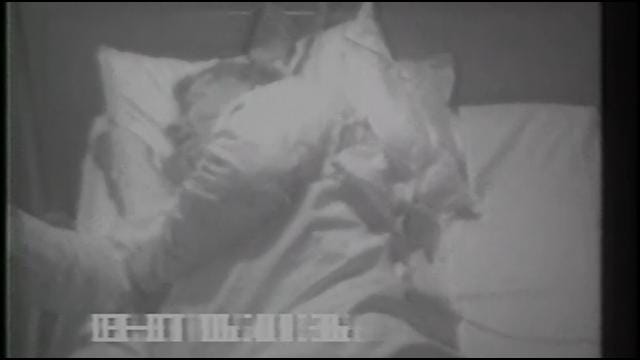University Of Tulsa Study Helps Curb Nightmares, Researchers Say
If you find yourself tossing and turning at night or waking up in a panic from nightmares, then you may benefit from cognitive behavioral treatment.Wednesday, March 6th 2013, 5:35 pm
Cutting-edge research at the University of Tulsa is helping people with post-traumatic stress disorder sleep better.
If you find yourself tossing and turning at night or waking up in a panic from nightmares, then you may benefit from cognitive behavioral treatment.
"The cognitive means we work with thoughts," TU Assistant Professor of Psychology Dr. Lisa DeMarni Cromer said. "The behavior is we get them to change different kinds of behaviors, so they can sleep better."
Cromer and associate professor Dr. Joanne Davis have spent the last decade researching people who have nightmares about traumatic events they've suffered.
"This can be any kind of trauma," Davis said. "It can be domestic violence, a motor vehicle accident, combat situations."
This treatment goes beyond average sleep clinic where patients' sleep habits are monitored.
The TU professors use a three-step process.
"We give them a lot of education about how trauma impacts nightmares and nightmares impact sleep and then how all of that impacts what you do during the day," Davis said.
After that, they have their clients talk about the nightmares in great detail.
"There's something about the process of getting the nightmare out of your head and putting it on paper that seems to be very, very helpful for a lot of people," Davis said.
Then, they teach better sleep techniques such as not drinking alcohol before bed or abusing sleep aides.
"We also teach good sleep practices because if you don't sleep, people try to do things to try to compensate for that," Davis said.
Lab Manager Christopher Cranston said this treatment eliminates nightmares for the vast majority of their patients.
"I've had a lot of reports from clients saying they can't believe how this brief treatment has helped them in such a short amount of time face something that they've been dealing with for decades," Cranston said.
The treatment is three to five 90-minute sessions.
They are also starting a trial with kids who have trouble sleeping because of tragic events.
If you're interested in participating in the study, you can call TU's Trauma Research Center at 918-631-3976 for the adult study and 918-631-2543 for the child study.
More Like This
March 6th, 2013
September 29th, 2024
September 17th, 2024
Top Headlines
December 12th, 2024
December 12th, 2024
December 12th, 2024
December 12th, 2024











